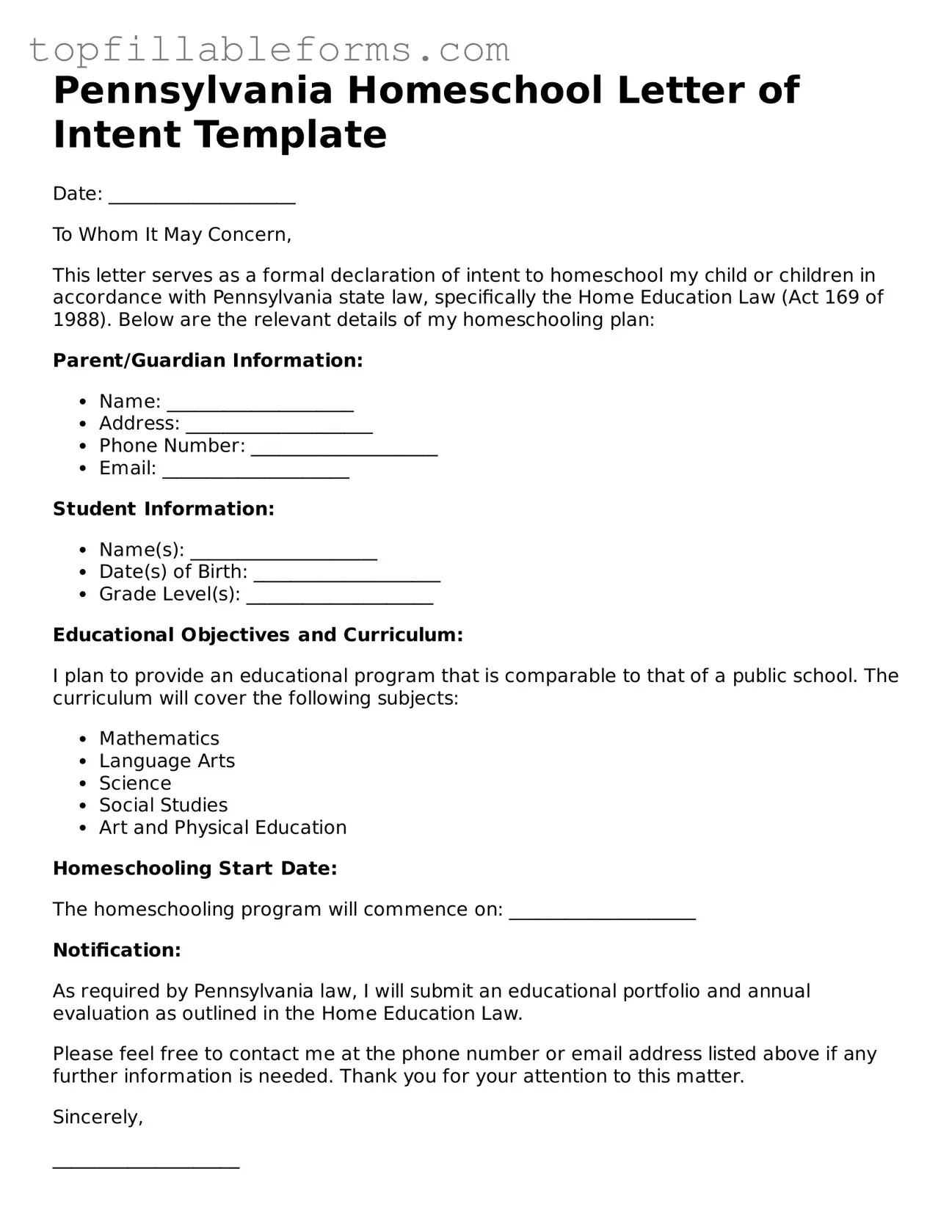Attorney-Verified Homeschool Letter of Intent Template for Pennsylvania
The Pennsylvania Homeschool Letter of Intent form is a document that parents must submit to officially notify their local school district of their intention to homeschool their children. This form serves as a crucial first step in the homeschooling process, ensuring compliance with state regulations. By completing and submitting this letter, parents take an important step toward providing a personalized education for their children.
Open Homeschool Letter of Intent Editor Here

Attorney-Verified Homeschool Letter of Intent Template for Pennsylvania
Open Homeschool Letter of Intent Editor Here
Finish the form now and be done
Finish your Homeschool Letter of Intent online by editing, saving, and downloading fast.
Open Homeschool Letter of Intent Editor Here
or
▼ PDF File
